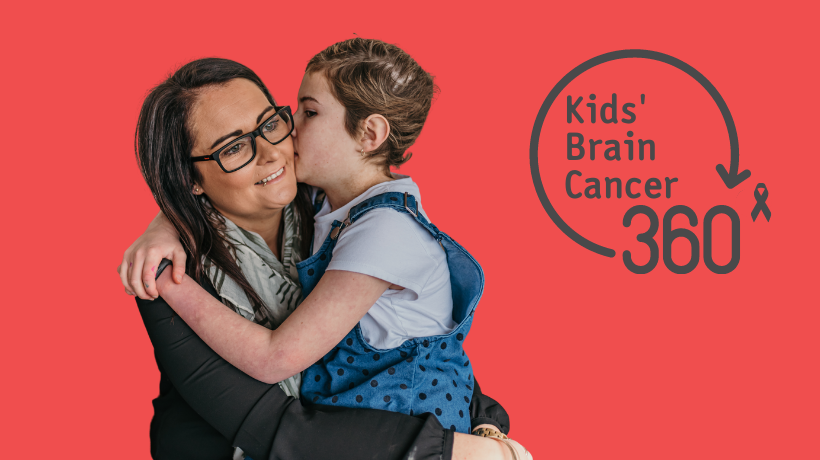
Kids’ Brain Cancer 360 is an editorial series where The Kids’ Cancer Project takes a deep dive into the issues confronting children diagnosed with this, the deadliest disease faced by Australian families today, by speaking with a broad spectrum of carers
Today we hear from Suzannah Taylor who provides her perspective as the mother and primary caregiver to a young survivor of brain cancer:
Macy is 11 years old now and is doing really well. In fact, she has had the best 12 months since she was diagnosed as a three-year-old, when a scan of her brain revealed that she had several pilocytic astrocytomas – tumours indicating a rare type of childhood brain cancer.
I try to stay positive between each scan, but the worry is always there. It just never leaves.
Having said that, I know that treatments have come a very long way, particularly compared to the way things were when Macy was first diagnosed. At that time there were only extremely narrow treatment options available.
After four years of chemo in Hobart, we travelled to Melbourne once or twice a month for two years, for a clinical trial of a new drug. It stabilised her tumours, but once the trial ended the growth increased. Since then, she’s been able to stay at home for a new clinical trial which, it’s hoped, might inhibit tumour growth. We are very lucky that each time she has relapsed there has been something else available, a new clinical trial, something new developed by researchers.
Science has been kind to us.
However, it’s still clear that a lot more funding needs to go into research for kids’ brain cancers. It’s clear that there’s not enough, and it’s not fair that the responsibility for fundraising is constantly put back onto members of the general public.
Another area that requires attention is service provision for survivors, or for those being treated. All of the treatment has seriously affected Macy’s vision and mobility. But when I have to deal with services such as the NDIS (National Disability Insurance Scheme), it feels as if I’m banging my head against a brick wall.
I don’t think anybody within the NDIS has any appreciation of how hard it is for a parent to deal with everyday life, whilst constantly having to fight just to get basic therapy and support for their seriously ill child.
There are people sitting behind computer screens that have no idea what the therapies involve, or their effects on a child. They are not trained in any way and show little to no empathy. Yet they are the ones saying yes or no to applications for funding for treatments, equipment, assistance from physiotherapists and occupational therapists, etc.
The pressure on parents is immense, but we’re forced to fight for absolutely everything, down to the tiniest detail. It’s 2021, and that should no longer be the case.
I appreciate the amazing science, and there needs to be funding for more. I appreciate the opportunity for life that my daughter has been given by new therapies developed by researchers and clinicians.
And I hope that one day, government departments set up to reduce the unbearable pressure on families of brain cancer patients and survivors will actually do what they’re designed to do, rather than making the situation worse.
